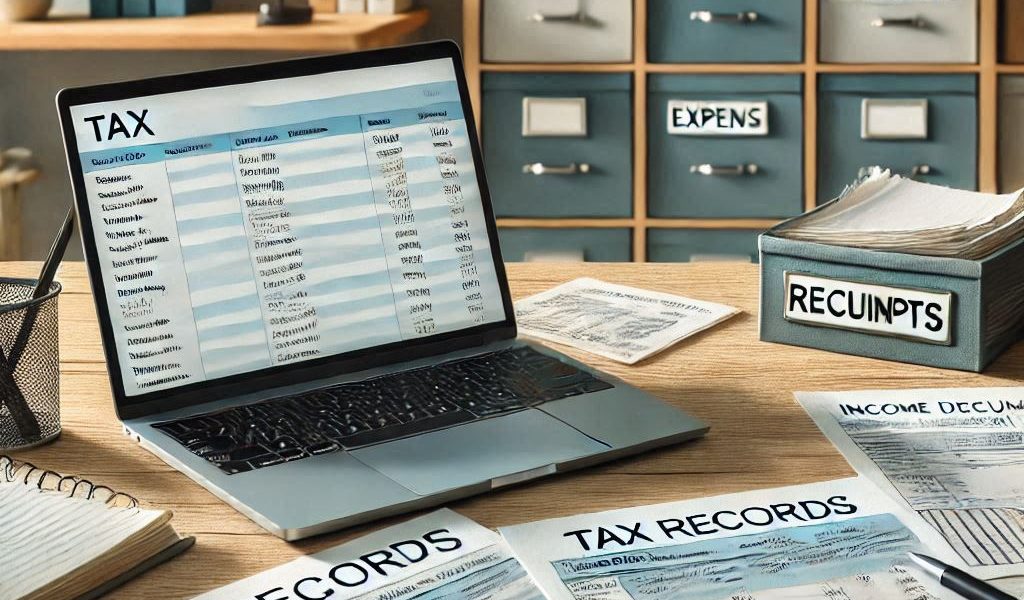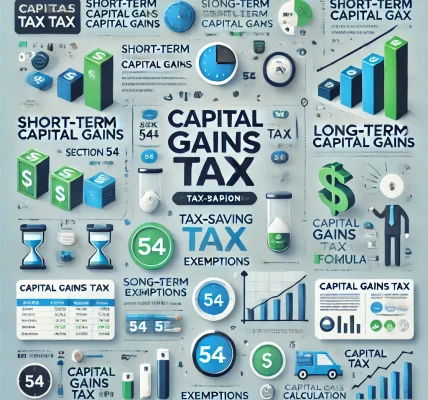Effective tax planning is a vital part of financial management, whether you are an individual taxpayer or a business owner. One of the most crucial yet often overlooked aspects of tax planning is maintaining accurate records. These records form the foundation of any successful tax strategy, helping you optimize your tax liabilities, ensure compliance, and avoid costly mistakes.
In this blog post, we’ll explore why keeping accurate records is essential for tax planning, the types of records you should maintain, and how they can help you reduce taxes, stay compliant, and avoid future issues with tax authorities.
Why Accurate Records Matter for Tax Planning
Tax planning is the process of organizing your finances in such a way that you minimize tax liabilities while staying within the bounds of the law. Accurate record-keeping plays a significant role in achieving this goal. Here’s why:
1. Maximizing Deductions and Credits
To reduce your taxable income, you must claim all eligible deductions and tax credits. However, claiming these benefits without proper documentation can lead to mistakes and missed opportunities. For example, you may be entitled to deductions for business expenses, education loans, home loan interest, medical expenses, and charitable donations. If you don’t maintain accurate records, it will be difficult to prove these expenses during tax filing, leading to potential penalties or missed savings.
2. Avoiding Tax Audits and Penalties
Tax authorities require taxpayers to maintain records for a specific period (typically 3-7 years, depending on your country’s tax laws). Failure to produce accurate records during an audit or review can result in penalties, fines, or even legal action. By keeping detailed and organized records, you ensure that you have the necessary documentation to substantiate your claims, reducing the risk of audits or penalties.
3. Ensuring Compliance
Tax laws can be complex, and they frequently change. With accurate records, you ensure that you are in compliance with the latest tax laws. For instance, keeping records of your income, expenses, and investments helps you accurately report your taxes and meet the filing deadlines. Accurate records also help you track any carry-forward losses or unused deductions that can be applied in future tax years.
4. Better Financial Planning and Decision Making
By maintaining records of your financial transactions, you gain valuable insights into your spending, saving, and investment habits. This information helps you make informed decisions about your financial goals and tax planning strategies. For example, if you know you’re approaching a higher tax bracket, you may decide to make tax-saving investments or contribute more to tax-advantaged accounts to reduce your taxable income.
5. Easier for Tax Professionals
If you hire a tax professional to prepare your tax returns, accurate records make their job easier and ensure they can file your taxes accurately. Tax professionals rely on the information you provide, and if that information is incomplete or inaccurate, they may miss out on tax-saving opportunities, or worse, make costly errors that could lead to audits or fines.
What Records Should You Keep for Tax Planning?
The specific records you need to maintain depend on your financial situation, but here’s a general list of key documents for both individuals and businesses:
For Individuals:
- Income Records: Keep records of your salary, investment income, rental income, or any other sources of income. This includes pay slips, bank statements, and Form 16 (in the case of salaried individuals).
- Expense Records: Maintain receipts, invoices, and statements related to tax-deductible expenses, such as medical expenses, education loans, home loan interest, and charity donations.
- Investment Records: Keep track of any investments you’ve made in mutual funds, stocks, real estate, or retirement accounts. These documents help you calculate capital gains, interest income, and any tax benefits associated with those investments.
- Tax Documents: Store your tax returns, tax payment receipts, and any correspondence with tax authorities.
- Deduction Documents: If you’re claiming deductions under Section 80C (for investments), Section 80E (education loans), or Section 24 (home loan interest), make sure to keep proof of payment and investments, such as receipts, certificates, and loan statements.
For Businesses:
- Income and Sales Records: Keep detailed records of your business income, including sales receipts, invoices, and bank deposit slips. For tax purposes, this helps you report income correctly and claim any exemptions.
- Expense Records: Maintain detailed records of all business-related expenses, including rent, utilities, supplies, payroll, and marketing costs. This documentation is necessary to claim business deductions.
- Payroll Records: If you have employees, you must keep records of employee wages, benefits, tax withholdings, and other payroll-related documents.
- Tax Filing and Payments: Keep a copy of your business tax returns, any quarterly estimated tax payments, and any correspondence from tax authorities.
Best Practices for Organizing Records
- Use Digital Tools: You can use digital tools like spreadsheets, accounting software (QuickBooks, Xero), or cloud storage systems (Google Drive, Dropbox) to store your records. Digital tools allow you to easily categorize and access documents when needed.
- Sort by Category: Create categories for different types of records such as income, expenses, investments, and tax filings. This helps you quickly locate documents when preparing your tax returns.
- Store for the Required Period: According to tax laws, you are required to maintain records for a certain number of years (typically 3 to 7). Ensure you keep records for at least this long.
- Backup Records: It’s essential to have backups of your records. If your documents are stored digitally, back them up to a cloud storage service or an external hard drive to prevent data loss.
Conclusion
Accurate record-keeping is the foundation of effective tax planning. By maintaining organized and complete records, you maximize your ability to claim deductions, reduce tax liabilities, avoid audits, and ensure compliance with tax laws. Proper records also help in better decision-making and smoother filing, whether you’re managing your own taxes or working with a professional.




